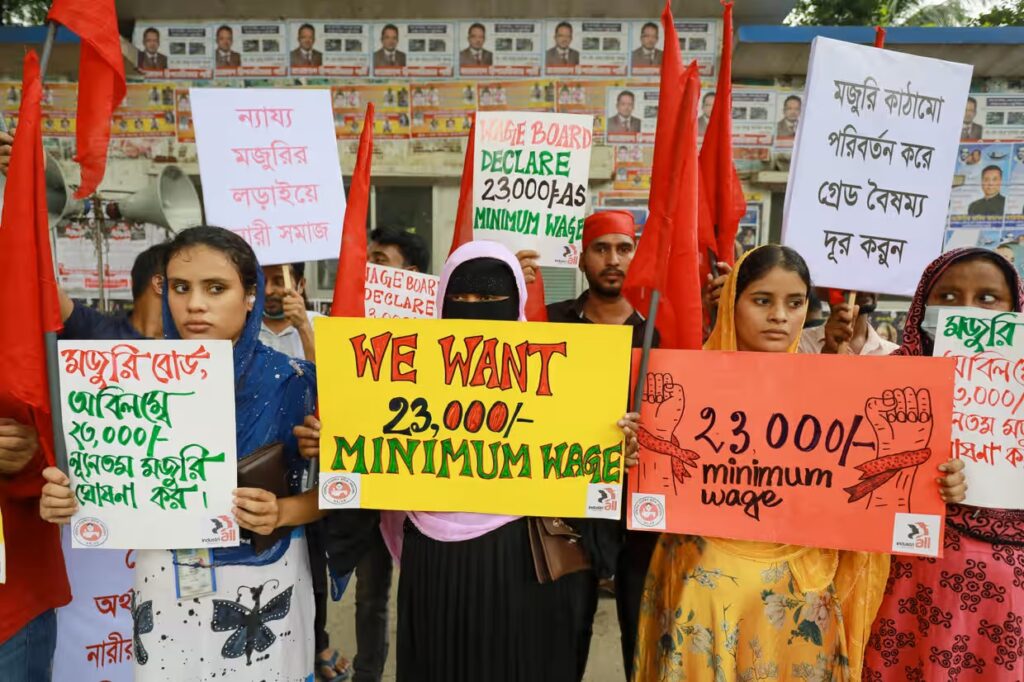Employees in Fast Fashion Brands Fear Starvation Amid Struggle for Increased Wages

Workers producing garments in Bangladesh for prominent UK high-street brands are grappling with the threat of starvation amid protests calling for higher wages. The ongoing demonstrations, which have turned increasingly violent, come in response to proposed changes to the country’s minimum wage for its four-million-strong garment workforce. Bangladesh, a major supplier to fast fashion brands, currently has one of the lowest minimum wages globally for garment workers, set at 8,000 taka (£60) since 2018. The government is suggesting a new minimum wage of 12,500 taka (£92) per month, which unions argue falls far short of the 23,000 taka (£170) needed to cover basic living costs given inflation and a cost of living crisis. The two-week review period before finalising the new minimum wage is expected to see further protests. Garment workers participating in the demonstrations in Dhaka assert that anything less than 23,000 taka a month would leave their families facing starvation. Some workers reported having to scavenge for food in fields and bins. Labor rights groups contend that, despite statements of support from fashion brands for higher wages, true change requires the brands to agree to pay more for their clothing orders. Brands such as Next, Asos, New Look, and Inditex (owner of Zara) issued a joint letter expressing support for wage developments. However, critics argue that these brands must take concrete action, including adjusting their prices to cover the increased labor costs. The Workers Rights Consortium emphasizes the necessity of brands paying factories and workers what it truly costs to produce clothing, rather than just expressing support in statements.
Repurposed article originally published in The Guardian






